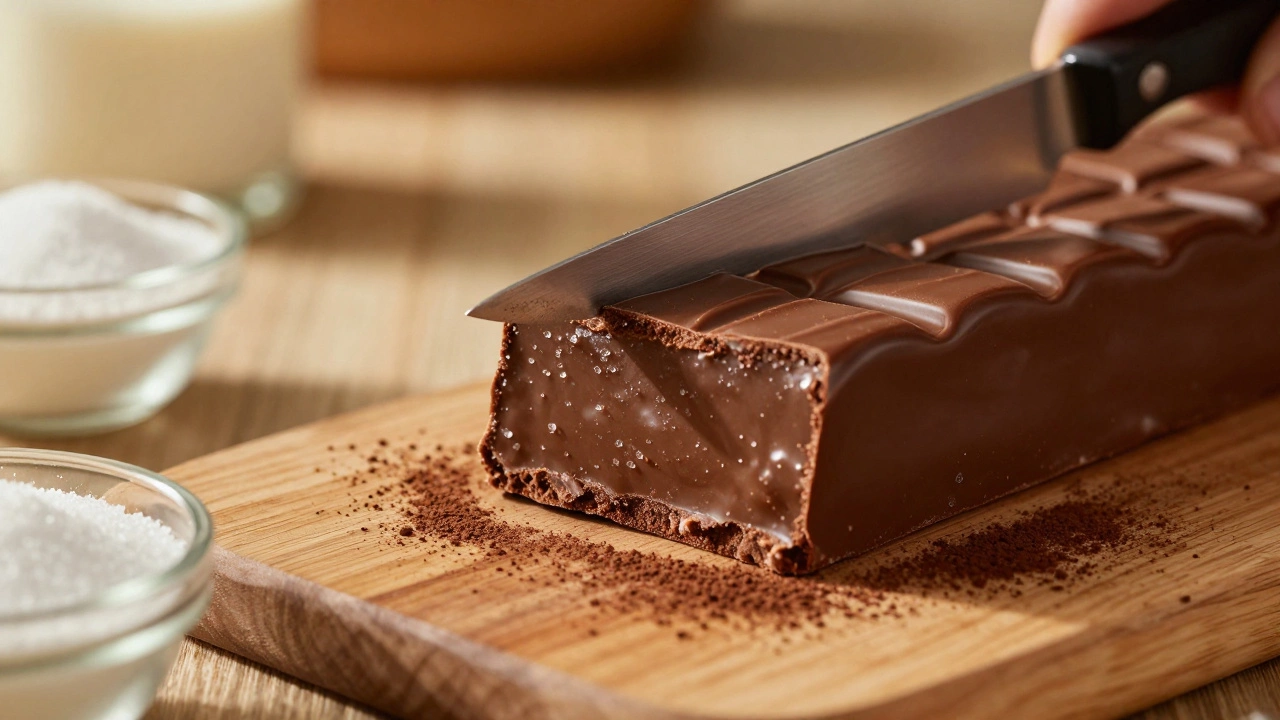Homemade Fudge Made Simple: Your Go‑To Guide
Fudge is one of those desserts that feels fancy but is actually a kid‑friendly kitchen project. With just a few pantry staples you can whip up a batch of silky chocolate fudge that melts in your mouth. The best part? No fancy equipment needed – a saucepan, a whisk, and a square pan do the trick.
Basic Chocolate Fudge Recipe
Start with the classic combo: sugar, butter, milk, and good‑quality chocolate. Here’s a quick rundown:
- 1 cup (200 g) granulated sugar
- ½ cup (115 g) unsalted butter
- ½ cup (120 ml) whole milk
- 2 cups (340 g) semi‑sweet chocolate chips
- 1 tsp vanilla extract
- A pinch of salt
Combine the sugar, butter, and milk in a medium saucepan. Heat over medium‑high, stirring constantly, until the mixture reaches a rolling boil. Let it boil for exactly 4 minutes – use a timer, not a guess. After the timer goes off, remove the pan from heat and stir in the chocolate chips until they melt completely. Add vanilla and salt, then pour the glossy mixture into a greased 8‑inch square pan.
Let the fudge cool at room temperature for about an hour, then pop it in the fridge for another hour to firm up. Cut into bite‑size squares and enjoy.
Pro Tips for Foolproof Fudge
Watch the temperature. A candy thermometer is ideal; you’re aiming for the soft‑ball stage (around 235 °F / 112 °C). If you don’t have one, the 4‑minute boil rule works well for most home kitchens.
Don’t over‑mix. Once the chocolate fully melts, keep stirring just enough to blend the vanilla and salt. Over‑mixing can introduce air bubbles and make the texture grainy.
Choose the right chocolate. Look for chocolate with at least 60% cocoa solids. Lower‑cocoa bars can make the fudge too sweet and affect the snap.
Grease the pan. A thin coating of butter or a light spray of non‑stick spray makes unmolding a breeze. You can also line the pan with parchment paper for extra safety.
Flavor Variations and Add‑Ins
Once you’ve mastered the base recipe, get creative. Here are a few crowd‑pleasers:
- Nutty fudge: Stir in ½ cup toasted walnuts, pecans, or almonds right before pouring into the pan.
- Salty caramel: Drizzle a spoonful of caramel sauce over the top and sprinkle sea salt flakes.
- Mocha twist: Add 1 tbsp instant coffee granules with the chocolate for a subtle caffeine kick.
- White chocolate raspberry: Swap half the semi‑sweet chips for white chocolate and fold in freeze‑dried raspberry pieces.
All these add‑ins work best when the fudge is still warm but not hot – otherwise the extras can melt too much.
Storing Your Fudge
Fudge stays fresh at room temperature for up to three days if it’s covered tightly. For longer storage, wrap the squares in plastic wrap and store them in an airtight container in the fridge. They’ll keep for about two weeks. If you want to freeze them, place the wrapped pieces in a zip‑top bag and they’ll stay good for up to three months – just let them thaw before serving.
That’s all you need to become a fudge pro. Grab your ingredients, follow the steps, and experiment with flavors. In no time you’ll have a tray of glossy, melt‑in‑your‑mouth fudge that looks as good as it tastes.



